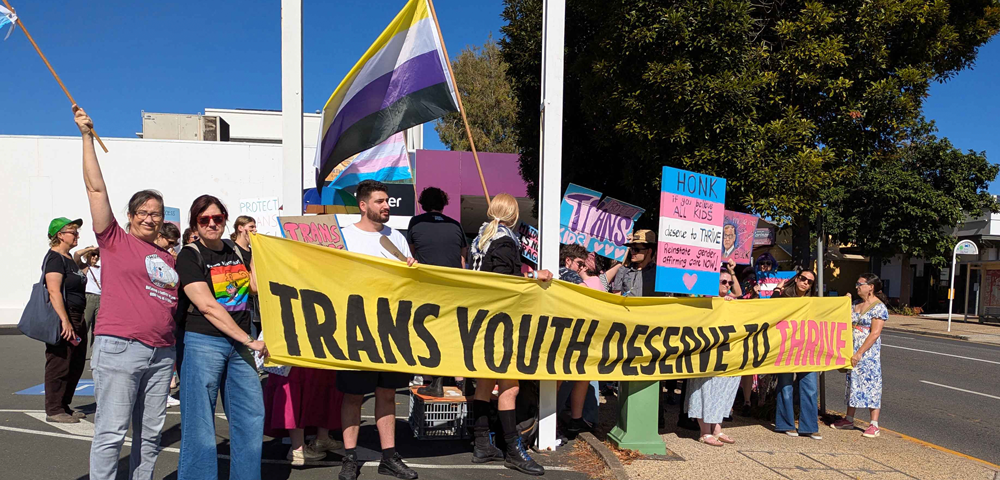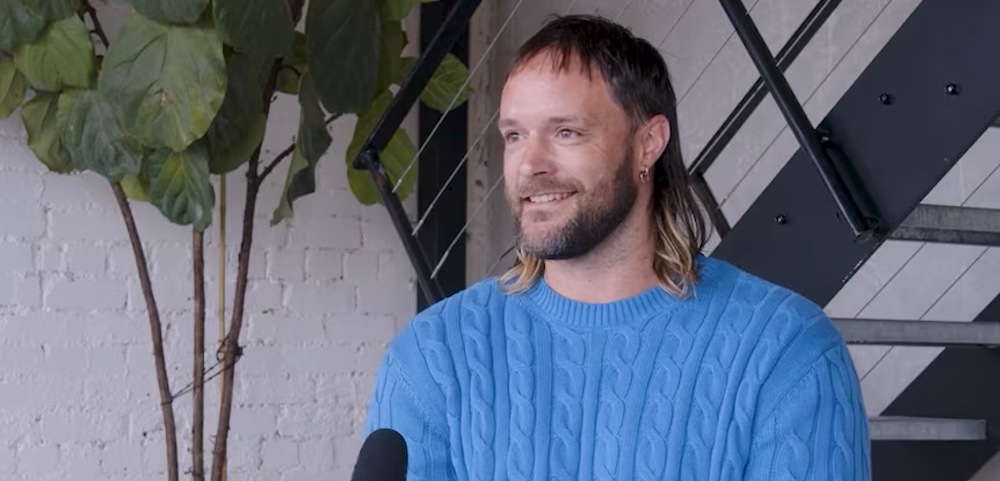
Human rights NGO to set up in Australia
Global human rights group Human Rights Watch (HRW) will set up an Australian office by the end of 2011.
HRW LGBTI program advocacy director Boris Dittrich revealed the plans to the Star Observer while visiting Australia last week.
HRW has offices in more than 20 countries and an on-the-ground presence in more than 90 countries. Its core work is researching and investigating human rights abuses of all kinds.
“We go in country, we work together with groups on the ground,” Dittrich said.
“We interview victims, witnesses, policemen, politicians, lawyers, journalists — you name it — and we write a report and with that we try to convince the government to change its laws and policies and to end those human rights abuses.”
Dittrich said HRW was different from groups like Amnesty International because it didn’t rely on a membership base. This means the organisation can react quickly to unfolding events.
“We have a staff of about 300 people and so we can be very flexible and fast,” Dittrich said.
“If something happens in Libya today, our researchers can be there very quickly to work on the ground.”
Dittrich told how his work with the organisation had brought him face-to-face with some of the world’s most homophobic politicians — including in Uganda.
Dittrich said he had been invited to Uganda by murdered gay rights activist David Kato and had spoken to the internal affairs minister about GLBTI human rights.
“It was quite a telling meeting,” Dittrich said.
“He told me, ‘We don’t care about human rights — when we signed those treaties we didn’t realise that human rights were applicable to gay men or lesbian women’. He was really condescending.”
Before joining HRW, Dittrich was a Dutch MP and was responsible for introducing the world’s first same-sex marriage bill.
He said part of the reason for his visit to Australia was to talk to politicians about how to move forward on the issue of marriage equality.
Dittrich met with Greens senator Sarah Hanson-Young and Tasmanian independent MP Andrew Wilkie, and Labor Party MPs Laurie Ferguson, Mark Dreyfus, Graham Perrett, and Senator Louise Pratt.
“I had asked for a meeting with the Attorney-General, but he was unable to see me,” Dittrich said. “However, I met with about seven of his staff members.”










hello
i am gay and i want to go Australia any one help me pl z .
thanks
so where and when will they open in Australia??
The Discrimination
Many New Zealand citizens permanently residing in Australian territory under the Trans-Tasman Travel Arrangements are currently excluded from the definition of ‘permanent resident’ in the Australian Citizenship Act 2007, and the definition of ‘Australian resident’ in the Social Security Act 1991, as a result of legislative changes that applied as of the 26th of February 2001.
As a result of these changes, many people who live, work, pay taxes, and raise families in Australia are now never able to enjoy equal rights simply because they come from New Zealand.
In a media release dated the 26th of February 2001, Philip Ruddock, Minister for Immigration and Multicultural Affairs welcomed these changes by announcing that:
“The new arrangements have been introduced with the express purpose of implementing the new social security agreement and apply to all New Zealand citizens, regardless of place of birth”
The Australian Parliament passed these changes on this basis. However, the current Australian Government now acknowledges that these legislative changes were unilaterally implemented by the Howard Government outside of any treaty with New Zealand.
Such unequal treatment based on nationality is classed as ‘race discrimination’ under Australian State & Territory laws. It is also considered unlawful discrimination under international law. However, it is perfectly legal under Australian Federal law.
Remedy Sought:
Australia has a duty to comply with its legal obligations under international law concerning the treatment of New Zealand nationals permanently residing within its territories – Specifically, all residents, regardless of nationality, are entitled to equality before the law and should be subject to the same reasonable waiting periods concerning access to citizenship and eligibility for social security and other social services.
This would put Australia in line with its legal obligations under the following articles of international law:
Article 9 – International Covenant on Economic, Social and Cultural Rights (ratified by Australia – i.e.: legally binding)
The States Parties to the present Covenant recognize the right of everyone to social security, including social insurance.
Article 16: International Covenant on Civil and Political Rights (ratified by Australia – i.e.: legally binding)
Everyone shall have the right to recognition everywhere as a person before the law.
Article 26: International Covenant on Civil and Political Rights (ratified by Australia – i.e.: legally binding)
All persons are equal before the law and are entitled without any discrimination to the equal protection of the law. In this respect, the law shall prohibit any discrimination and guarantee to all persons equal and effective protection against discrimination on any ground such as race, colour, sex, language, religion, political or other opinion, national or social origin, property, birth or other status.
– as described by the Committee on Economic, Social ,and Cultural rights in [37] of General Comment 19, The Right To Social Security E/C.12/GC/19:
37. Non-nationals should be able to access non-contributory schemes for income support, affordable access to health care and family support. Any restrictions, including a qualification period, must be proportionate and reasonable.